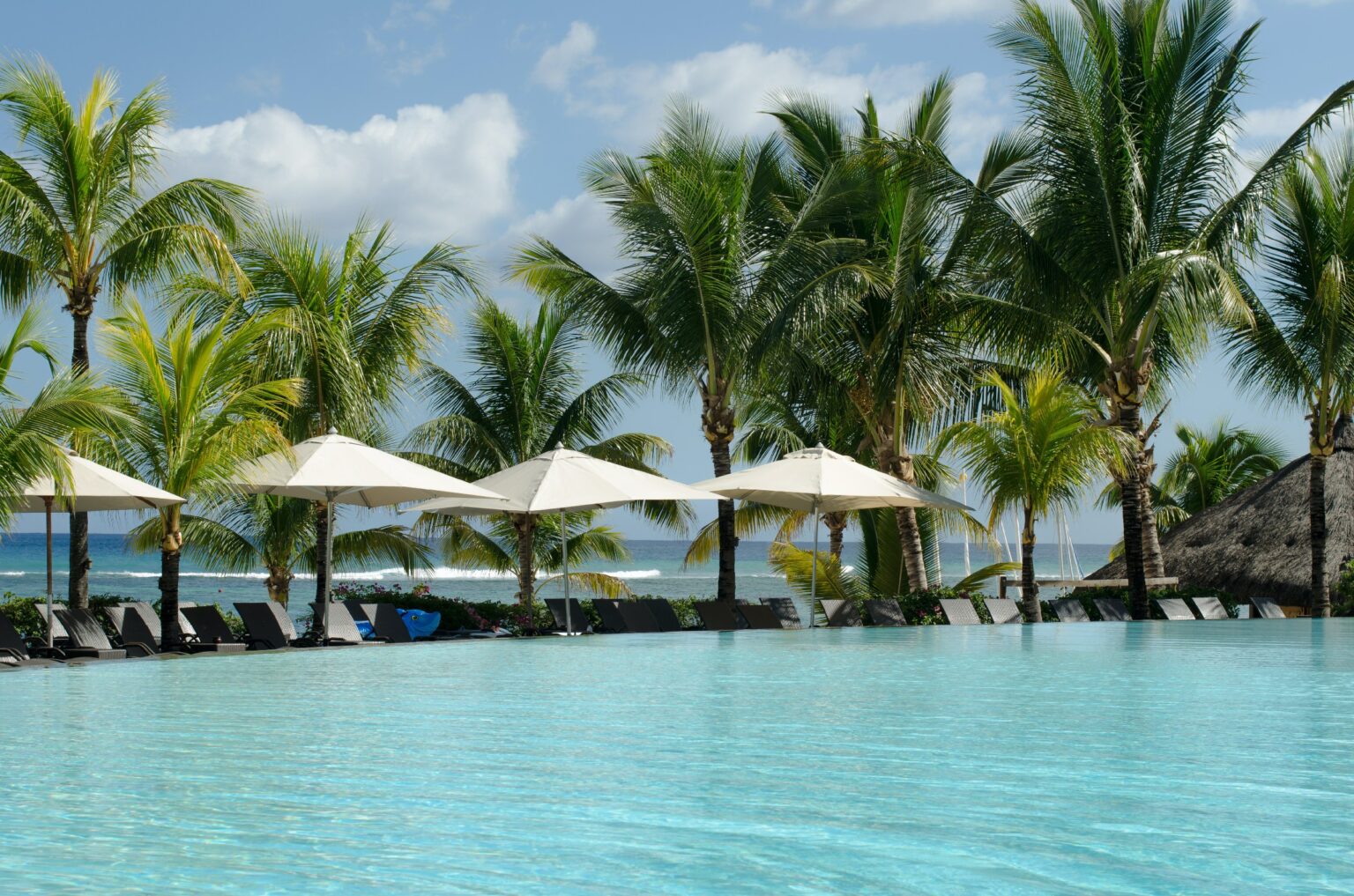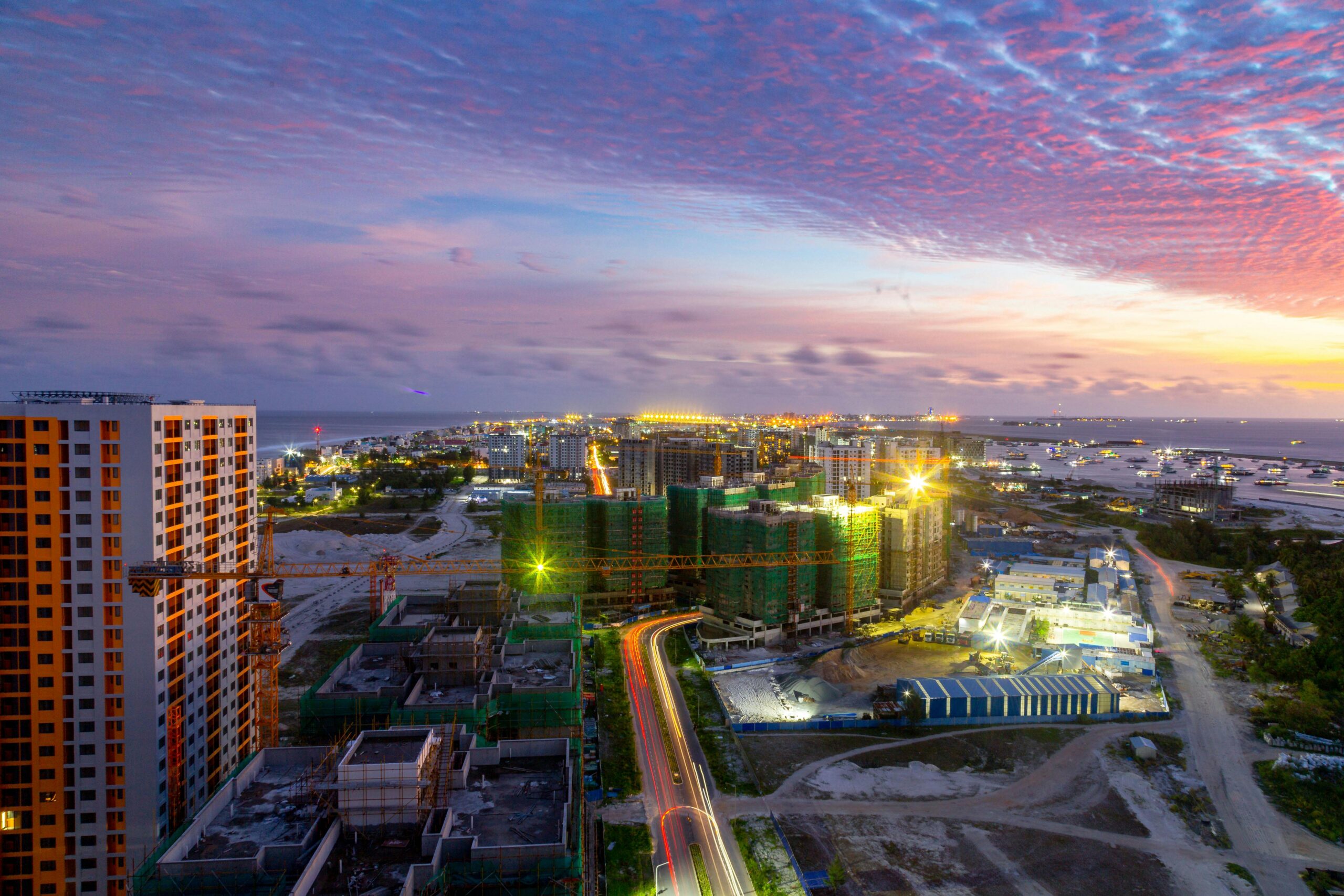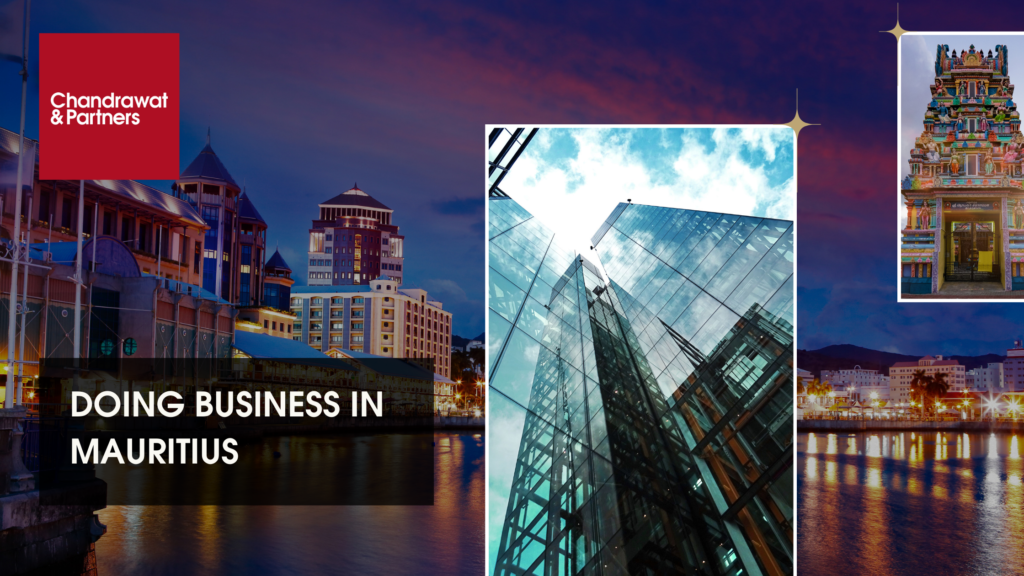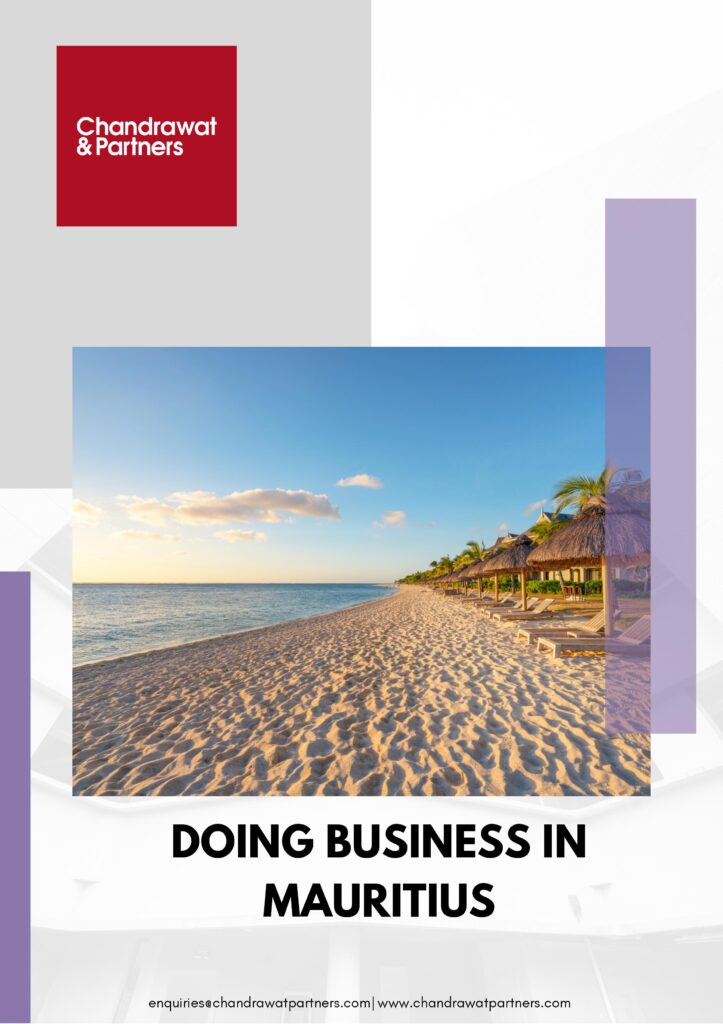We have a team of professionals to help you with all your business needs. So, that you can focus on business expansion in Mauritius.
Please feel free to email us on [email protected]
Mauritius
Why Mauritius?
Located off the eastern coast of Africa, Mauritius is an island country in the Indian Ocean. It is well known that, Mauritius is home to many financial institutions, including a development bank, offshore banking facilities, and several commercial banks. The country’s mixed developing economy is mainly based on agriculture; especially sugarcane, financial services, tourism and the port facilities in the capital city (Port Louis) handles most of the country’s exports. The gross domestic product (GDP), highest among African countries, grew more rapidly than the population in the 1990s and 2000s. According to per capita GDP, Mauritius is one of the wealthiest countries in Africa, only surpassed by Equatorial Guinea and the Seychelles.
Advantages
Gradually, Mauritius is becoming a part of a business expansion strategy of companies across the globe. Following are the some of the advantages of doing business in Mauritius:
Attractive and flexible tax system
The Mauritius government is doing the best to create an investment friendly environment for both local & international companies. This is truly evident from the following:
- The country is a low tax jurisdiction;
- No inheritance tax is applicable;
- It offers 80% tax credits to offshore companies;
- Dividends are tax exempted;
- No capital gain tax is levied; and
- Free repatriation of dividends, capital and profits.
Easy company incorporation process
Now setting up business entity in Mauritius is quite easy. Foreign investors can set up their companies within three working days and enjoy up to 100% foreign ownership. Also, there is no minimum foreign capital required to set up a company and start operations.
Excellent protection for foreign business owners
Mauritius is one of the best place where foreign business owners can enjoy excellent protection. The country has signed number of treaties, as well as multilateral agreements that ensure protection of foreign investors such as:
- The 1958 New York Convention;
- The International Court of Justice in the Hague; and
- The International Centre for Road (Regulation of Investment Dispute).
Free market economy
Mauritius is a free market economy and there is no control over exchange. This means there is absolutely no limit when it comes to transferring dividends, capital and profits out, from Mauritius to another country. In other words, one can easily transfer their profits generated in Mauritius to the place where their company is headquartered.
Amazing business opportunities across sectors
One country in Africa that has set the pace in the ease of doing business is Mauritius. Mauritius moved seven places to 13th out of 190 countries according to the latest World Bank Ease of Doing Business Report 2020. The country offers amazing business opportunities across different sectors such as: agro industries, logistics & distribution services, manufacturing & light engineering, seafood & aquaculture, IT & BPO, financial services, healthcare, medical travel, property development, hospitality, renewable energy and environment.
Simple Tax Regime
Corporate tax
A resident corporation in Mauritius is liable to tax on its worldwide income whereas, non residents corporations are liable to tax on any Mauritius source income subject to any applicable tax treaty provisions.
The corporations are liable to implement income tax on their net income at a flat rate of 15%. However the companies are engaged in the export of goods are liable to be taxed at the rate of 3% on the chargeable income attributable to exports based on a prescribed formula.
Individual Taxes
In Mauritius, Individuals, irrespective of their nationality, deriving income from sources within Mauritius are liable to Mauritian income tax on all such income, whether or not they are resident.
Resident individuals are subject to Mauritian income tax on their worldwide income from all sources. However, income derived from outside Mauritius is taxable only to the extent that it is received in Mauritius.
Personal income tax rates
- Annual income up to 650,000 Mauritian rupees (MUR) is liable to tax at a rate of 10%; and
- Net annual income above MUR 650,000 will be liable to taxed at a rate of 15%.
Local taxes on income
There are no local taxes on income is applicable in Mauritius.
Mauritius Companies
The Business Facilitation Act provides a framework that permits any businesses to begin operations on the premise of self adherence to comprehensive and clear tips.
Following entities are available in Mauritius:
Company restricted by shares
In this type of company, the liability of its members are restricted to the amount unpaid if any, on the shares severally controlled by them and who have given a guarantee restricted to the quantity they have undertaken to contribute, from time to time and within the event of it being wound up.
Company restricted by guarantee
This type of company is restricted to the liability of its members by its constitution to such quantity because the members might severally undertake to contribute to the assets of the corporate within the event of its being tense.
Company restricted by shares and guarantee
In this type of company, the liability of its members are restricted to the amount unpaid, if any, on the shares severally control by them; and who have given a guarantee, restricted to the quantity they have undertaken to contribute, from time to time, and within the event of it being wound up.
An unlimited company
In this type of company there is no limit placed on the liability of its shareholders.
Limited liability Company
This type of company is governed under the Corporate Act, 2001. It might be either public or personal.
Public company
The public companies might provide to sell its shares to the general public. In this company, the number of shareholders are more than twenty five.
Private company
Private companies shall not have more than 50 shareholders and shall not make any offer to the public to subscribe for its shares or debentures.
One person company
The Act provides that one person may form a company. However, at incorporation or within 6 months, the sole shareholder/director must nominate a person to be the secretary in the event of his death or incapacity.
Dormant firms
This type of companies are exempted from having their accounts audited and from paying certain fees, although they must still file accounts and returns as required under the Companies Act.
Foreign company
In Mauritius, a foreign company may also establish a business by obtaining registration of companies by submitting proper documentation and by fulfilling the requirements that are mentioned under the Company Act of Mauritius, 2001.
The foreign company may need to appoint authorized local agent in Mauritius and have registered office in the company.
Protected Cell Company (PCC)
Any PCC company in Mauritius is allowed to conduct only limited activity such as; investment, fund collection, insurance generation, structured finance, and asset holding. This type of company does not have any capital requirements.
Trust
The trust framework is developed under the Trust Act of 2001 and various types of trust are available for the resident and nonresident of Mauritius. Few examples of trust are; charitable, discretionary purpose and asset protection trust etc.
The gross domestic product (GDP), highest among African countries, grew more rapidly than the population in the 1990s and 2000s. According to per capita GDP, Mauritius is one of the wealthiest countries in Africa, only surpassed by Equatorial Guinea and the Seychelles.
Author: Chandrawat & Partners
Topic: Doing Business in Mauritius
Download our comprehensive guide on – Doing Business in Mauritius
Contact Us
Get in touch with the right people to get the right help in setting up your business in Mauritius.
Contact us at: [email protected]
Mauritius
We have a team of professionals to help you with all your business needs. So, that you can focus on business expansion in Mauritius.
WHY MAURITIUS?
Located off the eastern coast of Africa, Mauritius is an island country in the Indian Ocean. It is well known that, Mauritius is home to many financial institutions, including a development bank, offshore banking facilities, and several commercial banks. The country’s mixed developing economy is mainly based on agriculture; especially sugarcane, financial services, tourism and the port facilities in the capital city (Port Louis) handles most of the country’s exports. The gross domestic product (GDP), highest among African countries, grew more rapidly than the population in the 1990s and 2000s. According to per capita GDP, Mauritius is one of the wealthiest countries in Africa, only surpassed by Equatorial Guinea and the Seychelles.

ADVANTAGES
Gradually, Mauritius is becoming a part of a business expansion strategy of companies across the globe. Following are the some of the advantages of doing business in Mauritius
Attractive and flexible tax system
The Mauritius government is doing the best to create an investment friendly environment for both local & international companies. This is truly evident from the following:
- The country is a low tax jurisdiction;
- No inheritance tax is applicable;
- It offers 80% tax credits to offshore companies;
- Dividends are tax exempted;
- No capital gain tax is levied; and
- Free repatriation of dividends, capital and profits.
Easy company incorporation process
Now setting up business entity in Mauritius is quite easy. Foreign investors can set up their companies within three working days and enjoy up to 100% foreign ownership. Also, there is no minimum foreign capital required to set up a company and start operations.
Excellent protection for foreign business owners
Mauritius is one of the best place where foreign business owners can enjoy excellent protection. The country has signed number of treaties, as well as multilateral agreements that ensure protection of foreign investors such as:
- The 1958 New York Convention;
- The International Court of Justice in the Hague; and
- The International Centre for Road (Regulation of Investment Dispute).
Free market economy
Mauritius is a free market economy and there is no control over exchange. This means there is absolutely no limit when it comes to transferring dividends, capital and profits out, from Mauritius to another country. In other words, one can easily transfer their profits generated in Mauritius to the place where their company is headquartered.
Amazing business opportunities across sectors
One country in Africa that has set the pace in the ease of doing business is Mauritius. Mauritius moved seven places to 13th out of 190 countries according to the latest World Bank Ease of Doing Business Report 2020. The country offers amazing business opportunities across different sectors such as: agro industries, logistics & distribution services, manufacturing & light engineering, seafood & aquaculture, IT & BPO, financial services, healthcare, medical travel, property development, hospitality, renewable energy and environment.
SIMPLE TAX REGIME
Corporate tax
A resident corporation in Mauritius is liable to tax on its worldwide income whereas, non residents corporations are liable to tax on any Mauritius source income subject to any applicable tax treaty provisions.
The corporations are liable to implement income tax on their net income at a flat rate of 15%. However the companies are engaged in the export of goods are liable to be taxed at the rate of 3% on the chargeable income attributable to exports based on a prescribed formula.

Individual Taxes
In Mauritius, Individuals, irrespective of their nationality, deriving income from sources within Mauritius are liable to Mauritian income tax on all such income, whether or not they are resident.
Resident individuals are subject to Mauritian income tax on their worldwide income from all sources. However, income derived from outside Mauritius is taxable only to the extent that it is received in Mauritius.
Personal income tax rates
- Annual income up to 650,000 Mauritian rupees (MUR) is liable to tax at a rate of 10%; and
- Net annual income above MUR 650,000 will be liable to taxed at a rate of 15%.
Local taxes on income
There are no local taxes on income is applicable in Mauritius.
MAURITIUS COMPANIES
The Business Facilitation Act provides a framework that permits any businesses to begin operations on the premise of self adherence to comprehensive and clear tips.
Following entities are available in Mauritius:
Company restricted by shares
In this type of company, the liability of its members are restricted to the amount unpaid if any, on the shares severally controlled by them and who have given a guarantee restricted to the quantity they have undertaken to contribute, from time to time and within the event of it being wound up.
Company restricted by guarantee
This type of company is restricted to the liability of its members by its constitution to such quantity because the members might severally undertake to contribute to the assets of the corporate within the event of its being tense.

Company restricted by shares and guarantee
In this type of company, the liability of its members are restricted to the amount unpaid, if any, on the shares severally control by them; and who have given a guarantee, restricted to the quantity they have undertaken to contribute, from time to time, and within the event of it being wound up.
An unlimited company
In this type of company there is no limit placed on the liability of its shareholders.
Limited liability Company
This type of company is governed under the Corporate Act, 2001. It might be either public or personal.

Dormant firms
This type of companies are exempted from having their accounts audited and from paying certain fees, although they must still file accounts and returns as required under the Companies Act.
Foreign company
In Mauritius, a foreign company may also establish a business by obtaining registration of companies by submitting proper documentation and by fulfilling the requirements that are mentioned under the Company Act of Mauritius, 2001.
The foreign company may need to appoint authorized local agent in Mauritius and have registered office in the company.
Protected Cell Company (PCC)
Any PCC company in Mauritius is allowed to conduct only limited activity such as; investment, fund collection, insurance generation, structured finance, and asset holding. This type of company does not have any capital requirements.
Trust
The trust framework is developed under the Trust Act of 2001 and various types of trust are available for the resident and nonresident of Mauritius. Few examples of trust are; charitable, discretionary purpose and asset protection trust etc.

Public company
The public companies might provide to sell its shares to the general public. In this company, the number of shareholders are more than twenty five.
Private company
Private companies shall not have more than 50 shareholders and shall not make any offer to the public to subscribe for its shares or debentures.
One person company
The Act provides that one person may form a company. However, at incorporation or within 6 months, the sole shareholder/director must nominate a person to be the secretary in the event of his death or incapacity.

RELATED BLOGS
Author: Chandrawat & Partners
Topic: Doing Business in Mauritius
Contact Us
Get in touch with the right people to get the right help in setting up your business in Mauritius.
[email protected].



